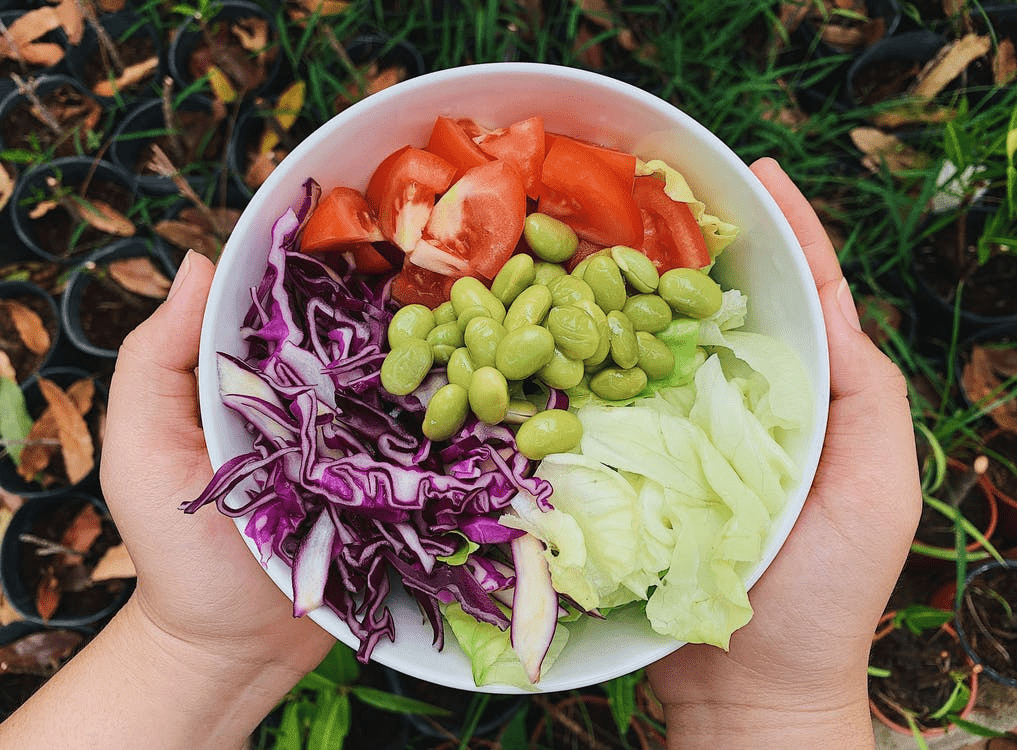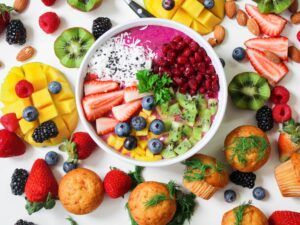
Vitamins and minerals are important nutrients that can help to improve the appearance of vitiligo-affected skin.
Vitiligo Diet Tips: Foods to Eat and Avoid
Vitiligo is a disorder in which pigment-producing cells known as melanocytes die, leaving you with discolored areas of skin. Because vitiligo is thought to be an autoimmune condition, it’s best to improve your immune system via food. Here a question arises can vitiligo be reversed with diet? While there is no one-size-fits-all vitiligo diet, a nutrient-dense diet rich in antioxidants, beta-carotene, and phytochemicals may aid with immune system function.
Clinical research on the impact of a personalized diet on people with vitiligo, on the other side, is still lacking. Although no specific vitiligo diets have been researched, early research shows that gluten in your diet may have a role in the disease. Even though there is no one-size-fits-all “vitiligo diet,” a cautious, well-balanced approach to food consumption is a good place to start for people who suffer from the illness.
Benefits of a Vitiligo Diet
Studies show that vitiligo is caused by stress to melanin-producing cells, resulting in pigmentation loss. These cells can be further targeted by oxidative stress (a breakdown in the equilibrium between the production and accumulation of oxygen-containing molecules). Consuming a well-balanced ayurvedic diet for vitiligo diet full of antioxidants can boost your immune system to be more productive in acting against vitiligo. It also greatly compliments your existing treatment options.
Vitiligo Diet Research
Note that vitiligo is not caused by nutrient deficits, but according to the Vitiligo Research Foundation, many people with vitiligo are found to be deficient in vitamin D, vitamin B12, folic acid, copper, and zinc. The state of vitiligo has improved when these deficiencies have been addressed. According to a study, Vitamin D was discovered to have a significant influence on overcoming vitiligo from the root. Vitamin D helps in generating hormones for the repigmentation of the skin. A full-nutrient diet can profoundly affect curing vitiligo and can even fast-track the process.
What to Eat
There hasn’t been much research done on what food is a golden remedy for treating vitiligo, but there are foods that can help diminish the causes of vitiligo, such as inflammation and oxidative stress. The key to the perfect vitiligo diet is eating healthily and trying new food that works for you.
Following is the list of food items that you might consider indulging in if you want to get rid of vitiligo.
- Fruits and vegetables: Eating enough antioxidant-rich fruits and vegetables is the best way to keep your body healthy from vitiligo. Opt for non-starchy veggies such as spinach and non-starchy cruciferous vegetables such as broccoli and Brussels sprouts. Consume more fruits, such as berries and oranges. Antioxidants are found in darker-colored fruits and vegetables.
- Whole grains: Refined grains are frequently devoid of many of the essential elements present in whole grains. Brown rice, whole-wheat pasta, oats, and quinoa are some examples of healthy grains to include in your diet.
- Protein: It is preferable to consume protein in the form of lean meats such as skinless poultry and turkey as well as eggs or legumes like chickpeas and lentils. Omega-3 fatty acids found in fatty fish like salmon and tuna help protect your heart and reduce inflammation. Cut down your consumption of processed meats like hot dogs, salami, and lunch meat. Aim to consume no more than twice as much red meat as plant-based protein such as lentils per week.
- Processed foods: Consuming a diet high in processed foods might lead to inflammation and nutritional deficiency. Avoid overindulgence in sugary drinks, sweets, and prepackaged meals.
- Beverages: Plain water is the greatest choice for a beverage. Alcohol and sugary drinks like juice and sports drinks should be avoided if you’re going to consume anything else. Avoid sugary drinks like tea, soda, juice, and coffee by opting for unsweetened tea, soda, juice, and coffee.
- Healthy fats: As part of a well-balanced diet, healthy fats are essential. Healthy fats are found in a variety of foods, including avocado, chia hasn’t, and nut butter.
The following is the basic list of foods that are good for vitiligo patients and the ones you should look out for.
| Food to Consume | Foods to Avoid |
| Whole grains Lean poultry Fatty fish (salmon, tuna) Eggs Nuts Seeds Beans, lentils, and legumes Fresh fruits and vegetables Healthy fats Low-fat dairy or fortified dairy alternative | Refined carbohydrates Sugar Processed foods or fast food Fried food Candy and dessert Processed meat Alcohol Margarine, butter, and lard |
Supplements
We all know that sticking to a particular diet is tough, so in that situation, supplements can aid you in achieving your goal of fulfilling your nutrition and essential vitamins. Supplements are a great way to manage vitiligo. Journal of Alternative and Complementary Medicine has reviewed 26 research to see whether dietary modifications and the usage of natural supplements may help treat vitiligo. It was shown that phenylalanine, Ginkgo Biloba, and polypodium leucotomos, when taken with standard therapy, may help alleviate the symptoms of vitiligo.
Vitamins
In addition, Vitamin C is a vital nutrient for the production of new skin cells. It helps to promote collagen production and also provides antioxidant protection against free radicals. Free radicals can damage the skin and contribute to the development of vitiligo. Vitamin C supplements can help to improve the appearance of vitiligo-affected skin. Vitamin D is another nutrient that is important for healthy skin. It helps to regulate cell growth and differentiation, and it also plays a role in the immune system. Vitamin D deficiency has been linked to the development of vitiligo.
Some other supplements that are helpful for vitiligo include:
- Vitamin E
- Selenium
- Zinc
- Fish Oil
- Green Tea Extract
- Vitamin C
Vitamins and minerals are important nutrients that can help to improve the appearance of vitiligo-affected skin. Taking supplements that contain these nutrients can help to prevent or treat the condition. These are just a few of the supplements that are helpful for vitiligo. If you are concerned about trying any of these, be sure to speak with your doctor first to make sure they are right for you.
Conclusion
You may now know that certain foods are helpful for vitiligo-affected skin. While there is no scientific evidence to support this claim, some people with vitiligo report that certain foods do seem to worsen their condition. However, eliminating certain foods or food categories is probably not essential due to the lack of evidence supporting large dietary adjustments. A well-researched vitiligo-specific diet is not available at this time. On the other hand, a well-balanced diet rich in fruits and vegetables will help you maintain your overall health and well-being.






